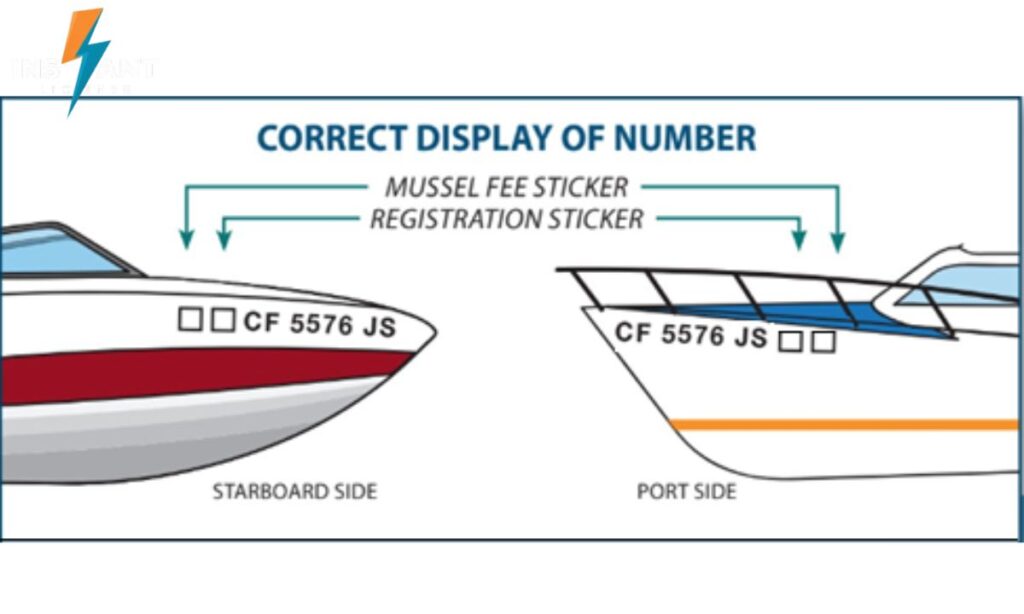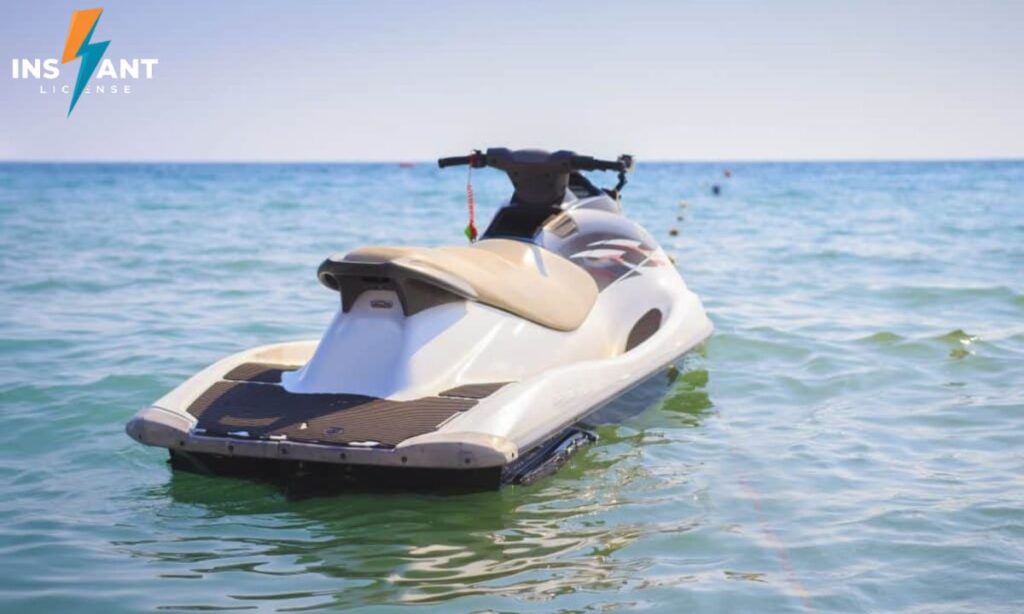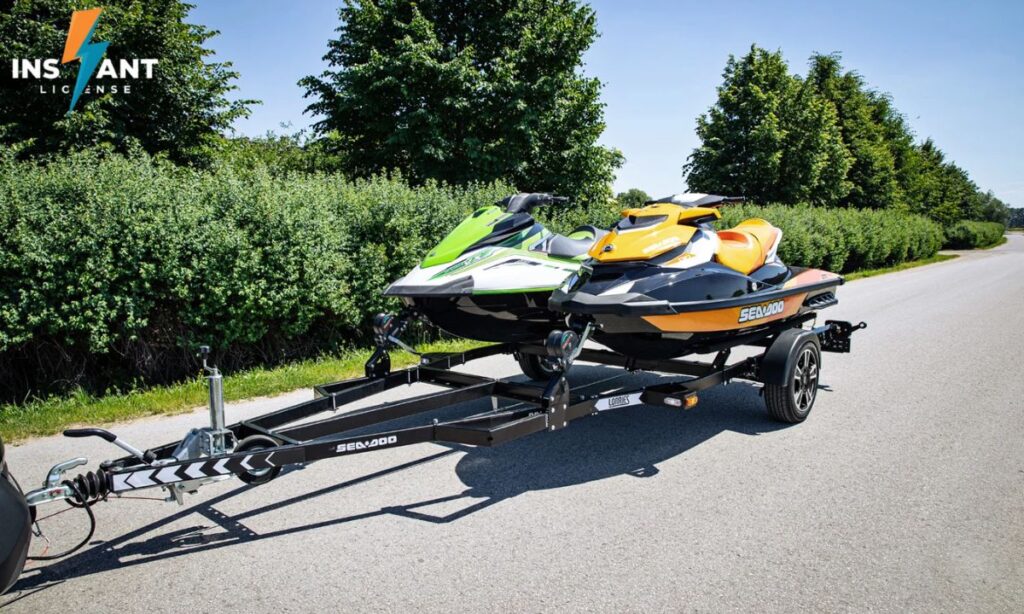California state law requires all jet ski trailers to have a license plate, regardless of size. Unlike some states with exemptions for smaller trailers, California mandates registration for all trailers used on public roads.
The Department of Motor Vehicles (DMV) issues permanent trailer identification plates after completion of proper registration paperwork and payment of fees. Failing to properly register your jet ski trailer can result in citations and fines when traveling on California highways and roads.
Understanding California Trailer Registration Laws
California has specific regulations for trailer registration that all owners must follow. These laws vary based on the trailer’s weight, purpose, and design specifications.
The California Department of Motor Vehicles (DMV) oversees all trailer registrations in the state. Failing to properly register your trailer can result in citations and fines if you’re caught using unregistered equipment on public roads.
Do Jet Ski Trailers Require a License Plate in California?
Jet ski trailers in California do require proper registration and license plates. This requirement applies regardless of the trailer’s size or the number of watercraft it’s designed to carry.
The license plate must be clearly visible and properly mounted on the rear of the trailer. Even if you only use your jet ski trailer occasionally, registration is still mandatory for legal operation on California roads.
California DMV Requirements for Jet Ski Trailers

To register a jet ski trailer in California, you’ll need to submit several documents to the DMV. These typically include proof of ownership, a completed registration application form, and payment for all applicable fees.
The registration process also requires a vehicle identification number (VIN) inspection in many cases. California residents must register their trailers within 20 days of purchase or face potential penalties for late registration.
How to Register Your Jet Ski Trailer in California
- Visit your local California DMV office or use their online services when available
- Bring proof of ownership (bill of sale, manufacturer’s certificate of origin, or previous registration)
- Complete form REG 343 (Application for Title or Registration)
- Have your trailer’s Vehicle Identification Number (VIN) verified by a DMV representative or law enforcement officer
- Pay the required registration fees (varies based on trailer value and weight)
- Obtain and attach a permanent license plate to the rear of your trailer
- Keep registration documents with you when towing the trailer
- Renew your registration annually before the expiration date
- If purchasing a new trailer, temporary operating permits may be available from the dealer
- Out-of-state trailers must be registered within 20 days of establishing California residency
Fees and Costs for Jet Ski Trailer Registration
Registration fees for jet ski trailers in California vary based on weight and value. Most lightweight trailers cost between $20-$60 for initial registration, plus a $23 title fee, $23 CHP fee, and $25 transportation improvement fee. Additional county fees may apply depending on your location.
Annual renewal fees are typically lower than initial registration, usually ranging from $10-$40. Late renewals incur penalties that increase over time, so it’s important to pay on time. Some trailers may qualify for permanent registration with a one-time fee, saving money in the long run.
Exemptions: When a Jet Ski Trailer May Not Need a Plate
In California, jet ski trailers weighing less than 1,500 pounds unladen may qualify for an exemption from standard registration requirements. These lightweight trailers can often be operated with just a copy of the bill of sale on hand, though this varies depending on your specific county regulations and how the trailer will be used.
If your jet ski trailer is used exclusively on private property and never travels on public roads, you may be exempt from registration and plating requirements altogether. Additionally, some counties offer temporary permits for out-of-state visitors using trailers for recreational purposes during a short stay, allowing them to avoid the full registration process.
Penalties for Unregistered Jet Ski Trailers in California

Operating an unregistered jet ski trailer in California can result in traffic citations and fines ranging from $100 to $1,000 depending on how long the trailer has been unregistered. Law enforcement may also impound your trailer, requiring payment of towing and storage fees before release.
Repeated violations can lead to more severe consequences, including higher fines and potential misdemeanor charges. Additionally, you may face complications with insurance claims if involved in an accident while using an unregistered trailer, as insurers might deny coverage for damages.
California Jet Ski Trailer Insurance Requirements
- There is no specific insurance requirement for jet ski trailers in California
- However, liability insurance is strongly recommended to protect against damages
- Most auto insurance policies extend liability coverage to trailers being towed
- Check with your insurance provider to confirm your trailer is covered
- Consider additional coverage if your jet ski trailer is valuable
- Comprehensive coverage can protect against theft, vandalism, and weather damage
- Collision coverage helps pay for repairs if your trailer is damaged in an accident
- If you rent your jet ski and trailer to others, you may need commercial insurance
- Lenders typically require full coverage insurance if you financed your trailer
- Keep proof of insurance with your trailer registration documents
Towing Laws: What You Need to Know for Safe Transport
Towing laws vary by state. Most require safety chains and working brake lights. Weight limits depend on your vehicle’s capacity. You must secure all loads properly. Some states need special permits for oversized loads. Always check local regulations before towing.
Insurance requirements differ across regions. Many states mandate specific coverage for towing. Speed limits are typically lower when pulling a trailer. Proper mirrors are essential for visibility. Most areas require trailer brakes for loads over 3,000 pounds. Violations can result in hefty fines. Always maintain the proper following distance when towing.
Read This Blog: Tennessee Trailer License Plate Laws: Do You Need One?
Differences Between Boat Trailers and Jet Ski Trailers
Boat trailers are larger and more robust. They feature multiple axles for heavy loads. Most have adjustable bunks or rollers. Boat trailers require more powerful vehicles to tow. They often include guide poles for alignment. Braking systems are mandatory on larger models. Maintenance costs are typically higher. Proper weight distribution is crucial for safety.
Jet ski trailers are compact and lightweight. They usually have a single axle design. Most accommodate one to three watercraft. Smaller vehicles can tow them effectively. They feature specialized cradles for jet ski hulls. Galvanized frames resist saltwater corrosion. Storage is easier due to their smaller footprint. Many models fold for convenient garage storage. They generally cost less than boat trailers.
Renewing Your Jet Ski Trailer Registration in California
California requires annual trailer registration renewal. Forms are available online or at DMV offices. Fees depend on trailer weight and value. Late renewals incur penalties. Bring proof of insurance to your appointment. Processing takes about two weeks. Many counties offer smog exemptions for jet ski trailers. Payment methods include credit cards and checks.
Keep registration documents in your towing vehicle. California law requires visible license plates. Trailer registration expiration dates match vehicle registration cycles. Out-of-state visitors need temporary permits after 30 days.
Electronic renewals process faster than mail-in forms. Replacement stickers cost additional fees. Registration includes access to state waterways. Some marinas verify current registration before launching.
Final Checklist: Ensuring Your Jet Ski Trailer is Road Legal

Check your trailer lights before heading out. Ensure brake lights and turn signals work properly. Inspect safety chains for rust or damage. Confirm your trailer hitch is secure. Verify tire pressure and tread depth. Make sure your license plate is visible and current. Double-check that all tie-downs are tight. Ensure your trailer’s weight is within your vehicle’s towing capacity.
Carry your trailer registration and insurance documents. Measure your load to avoid overhanging issues. Check local regulations for specific requirements. Ensure your trailer brakes function correctly if equipped. Inspect wheel bearings for signs of wear. Verify that your trailer tongue weight is appropriate. Use proper mirrors for better visibility. Perform a final walk-around before departure.
Frequently Asked Questions
Do jet ski trailers require a license plate in California?
Yes, all jet ski trailers in California require registration and license plates regardless of their size.
How much does jet ski trailer registration cost in California?
Initial registration typically costs between $20-$60 plus additional fees (title fee, CHP fee, etc.), totaling around $71-$111.
What documents do I need to register my jet ski trailer?
Proof of ownership, completed REG 343 form, and VIN verification are required for registration.
Are there any exemptions for jet ski trailer registration?
Trailers under 1,500 pounds unladen weight may qualify for certain exemptions, and trailers used exclusively on private property don’t require registration.
What happens if I’m caught with an unregistered jet ski trailer?
Penalties range from $100-$1,000 in fines, possible impoundment, and potential insurance complications if involved in an accident.
Conclusion
Taking the time to ensure your jet ski trailer meets all legal requirements protects you and others on the road. By following this checklist, you’ll avoid fines and potential accidents while maintaining your equipment in optimal condition. Remember that regulations exist for safety reasons, not just to create bureaucratic hurdles for enthusiasts.
Proper preparation before towing leads to peace of mind during your adventures. When your trailer is road legal and well-maintained, you can focus on enjoying your time on the water rather than worrying about legal issues or mechanical failures. Safe towing practices benefit everyone sharing the roadways and help preserve your valuable watercraft investment for years of enjoyment.

Jimmy is an SEO expert specializing in license plates. He excels in content writing, keyword research, and web development, combining technical skills with creative strategies to deliver top-notch digital solutions.

